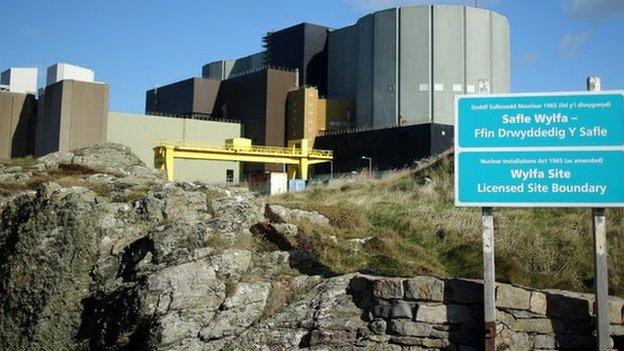Anglesey's Wylfa nuclear plant's shutdown day revealed
- Published
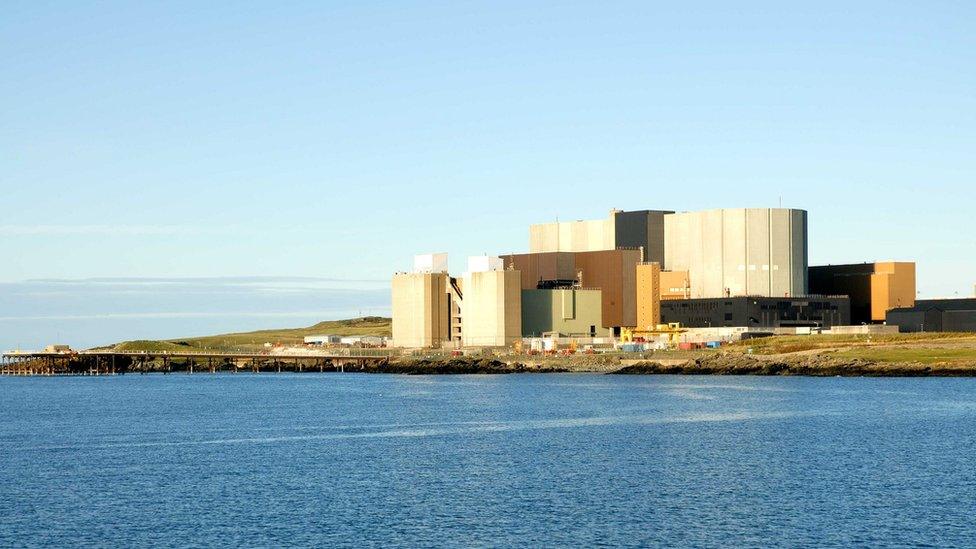
Wylfa nuclear power station on Anglesey will shut down for good on 30 December, it has been announced.
It will bring an end to 44 years of generating electricity on the island.
The decision will see about 150 of its 500 remaining staff lose their jobs by April next year, before full decommissioning gets under way.
Wylfa's operator Magnox said the site would enter a 100-day "cool down" period, before the process of removing nuclear fuel begins.
Site director Stuart Law said it was "the right time" to close down the last of the two nuclear reactors.
Not only has Wylfa had a series of extensions to its working life since 2010, it is now running low on the specialised nuclear fuel Magnox reactors use.
"It is sad - but when you look at what you would do, it is the right time to bring it to this end," said Mr Law.
"It has been a real pleasure and an honour to have had this role at Wylfa - and to take it as far as we have done."
He said he was proud the plant had generated enough electricity over its lifetime to effectively power every single home in Wales, every year since 1971.
Wylfa has been generating electricity at the nuclear plant since 1971
After April, removal of spent fuel from the site will begin, with it taken to Sellafield in Cumbria for reprocessing.
This will take two to three years, after which much of the site will be cleared, leaving just the reactor buildings and fuel stores by 2026.
By then, it is hoped a new nuclear plant - Wylfa Newydd - will have been built and be operational on a site opposite the current power station.
Horizon Nuclear Power, who are behind the £8bn Japanese-owned Hitachi proposals for the new plant, said detailed plans would be ready to submit for approval in 2017.
If those are agreed, Horizon said it wanted to see the first concrete for the new build poured in 2020 and the new plant generating power by the middle of the decade.
However, it faces some opposition, with the former Prime Minister of Japan Naoto Kan visiting the island to back anti-nuclear campaigners following the Fukushima disaster in 2011.
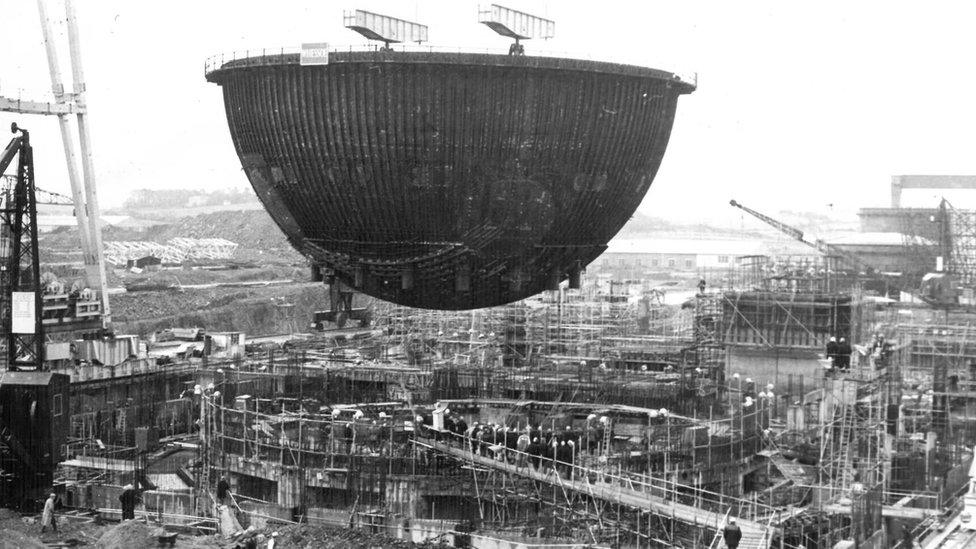
The reactor vessel at Wylfa in the 1960s
- Published23 October 2015
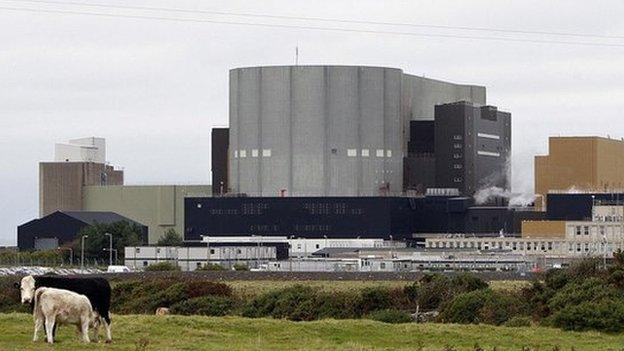
- Published22 May 2015
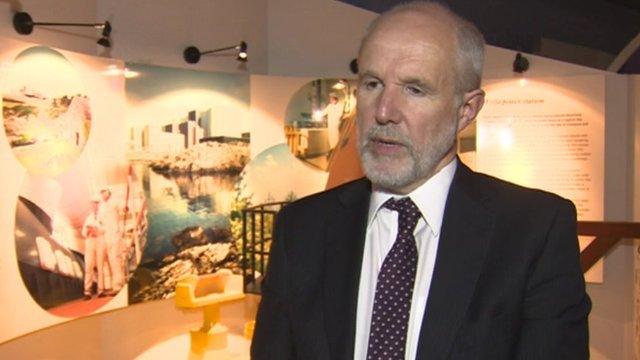
- Published30 September 2014
